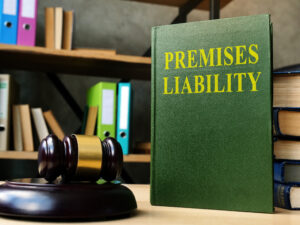
Were you injured in an accident caused by a dangerous or defective condition on someone else’s property, you may have the right to file a premises liability claim.
While it may seem reasonable to receive compensation from a property manager or owner for accidents on their property, cases involving premises liability are often complex. Property occupiers, owners, or managers will try to minimize or deny liability in these situations. They may also argue that another party or entity was responsible for the incident.
If you are involved in an accident and injured on someone’s property, contact Jonathan Perkins Injury Lawyers. Our personal injury attorneys in Connecticut are committed to helping victims recover the compensation they deserve for their injuries and losses in an accident.
Connecticut Premises Liability Defined
Premises liability falls under the personal injury umbrella. This term describes an accident and injury caused by defective or dangerous conditions on someone else’s property.
Like other personal injury claims, a premises liability claim is based on negligence.
It is up to you (the injured party), with help from your attorney, to prove the property occupier, manager, or owner acted negligently and did not use reasonable care to maintain the property, which ultimately led to your accident, injury, and losses.
In Connecticut, there are several types of premises liability claims. Some of the most common we represent at Jonathan Perkins Injury Lawyers include the following:
- Slip and Fall Accidents. A slip and fall incident typically occurs due to defects on the ground, like uneven pavement or floors, wires or other items on the floor or ground, spilled liquids, and worn carpets and rugs.
- Dog Bites. Dog owners are liable unprovoked for injuries caused by their dog regardless of where the bite happens or if the dog is on a leash.
- Ice and Snow Accidents. This usually falls under the slip-and-fall category; however, it is worth mentioning again because Connecticut gets so much snow and ice. If a property owner, manager, or occupier fails to clear snow and ice from walkways, parking lots, walkways, driveways, and outside steps, they may be liable for accidents and injuries that occur.
- Explosions and Fires. A fire or explosion on someone’s property caused by hazardous or dangerous conditions may make the property manager, occupier, or owner liable.
- Negligent Security. Proper security measures are required on some properties, including alarms, lighting, and guards. If this is not provided, the property owner, occupier, or manager may be liable if someone is injured or the victim of a criminal act due to inadequate security.
- Escalator or Elevator Accidents. Property occupiers, managers, and owners may be liable to those injured by escalators and elevators. Accidents commonly include crushing by the doors or tripping by broken steps.
This is not an extensive list of premises liability claims. Others that may occur and that our legal team can provide representation for include the following:
- Negligent supervision
- Skiing injuries
- Camp school abuse
- Amusement Park accidents
- Snowboarding accidents
- Sexual abuse
- Playground accidents
Proving Liability in Your Premises Liability Claim
Negligence is the determining factor in a premises liability claim. If you file a claim against a property owner, occupier, or manager, you must prove their negligence and failure to demonstrate reasonable care when maintaining the property caused your accident and injury.
Your status as a visitor determines the reasonable care a property owner owes you.
The most common premises liability victim we represent is invitees. As an invitee, you are on the property to benefit the owner or occupier. This includes visiting someone’s home or being a customer at a restaurant or store.
A visitor may also be a licensee. As a licensee, you are legally allowed on the property but present for your benefit. Examples include utility workers and salespeople.
When filing a premises liability claim, you must prove that the hazardous or dangerous condition was present on the property and that the person in charge knew about it (or should have known about it).
The first step is proving that the owner or occupier knew of the hazardous condition. It is also necessary to prove the responsible party had a reasonable amount of time to fix the issue.
Our Connecticut Premises Liability Lawyers Can Help with Your Case
If you are injured on someone else’s property, contact our experienced and knowledgeable premises liability lawyers at Jonathan Perkins Injury Lawyers. We can provide a free case evaluation to determine the best way to proceed with your situation.
Read More
Unexpected Injuries After a Connecticut Slip & Fall Accident
What Factors Impact the Value of Your Personal Injury Claim?
